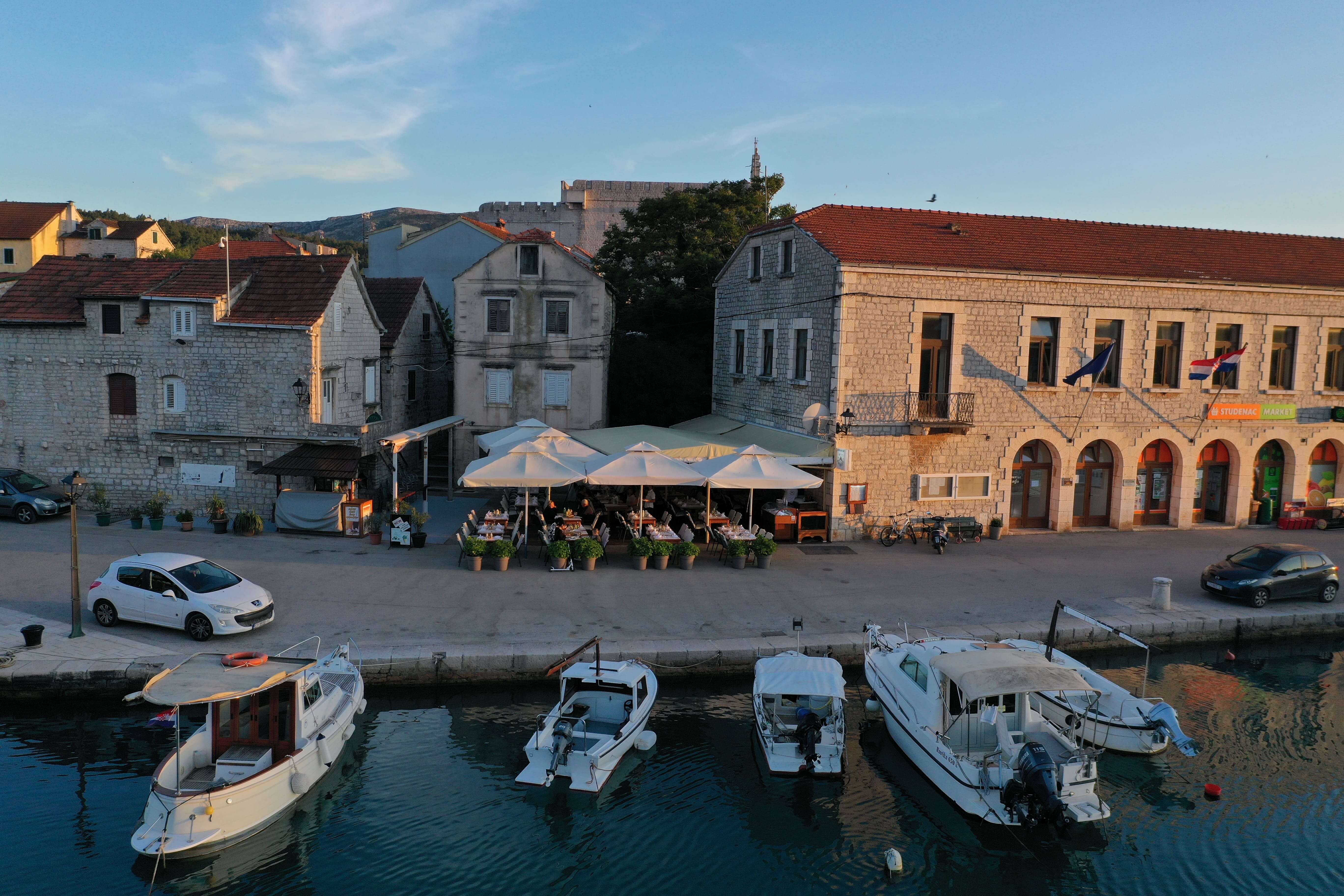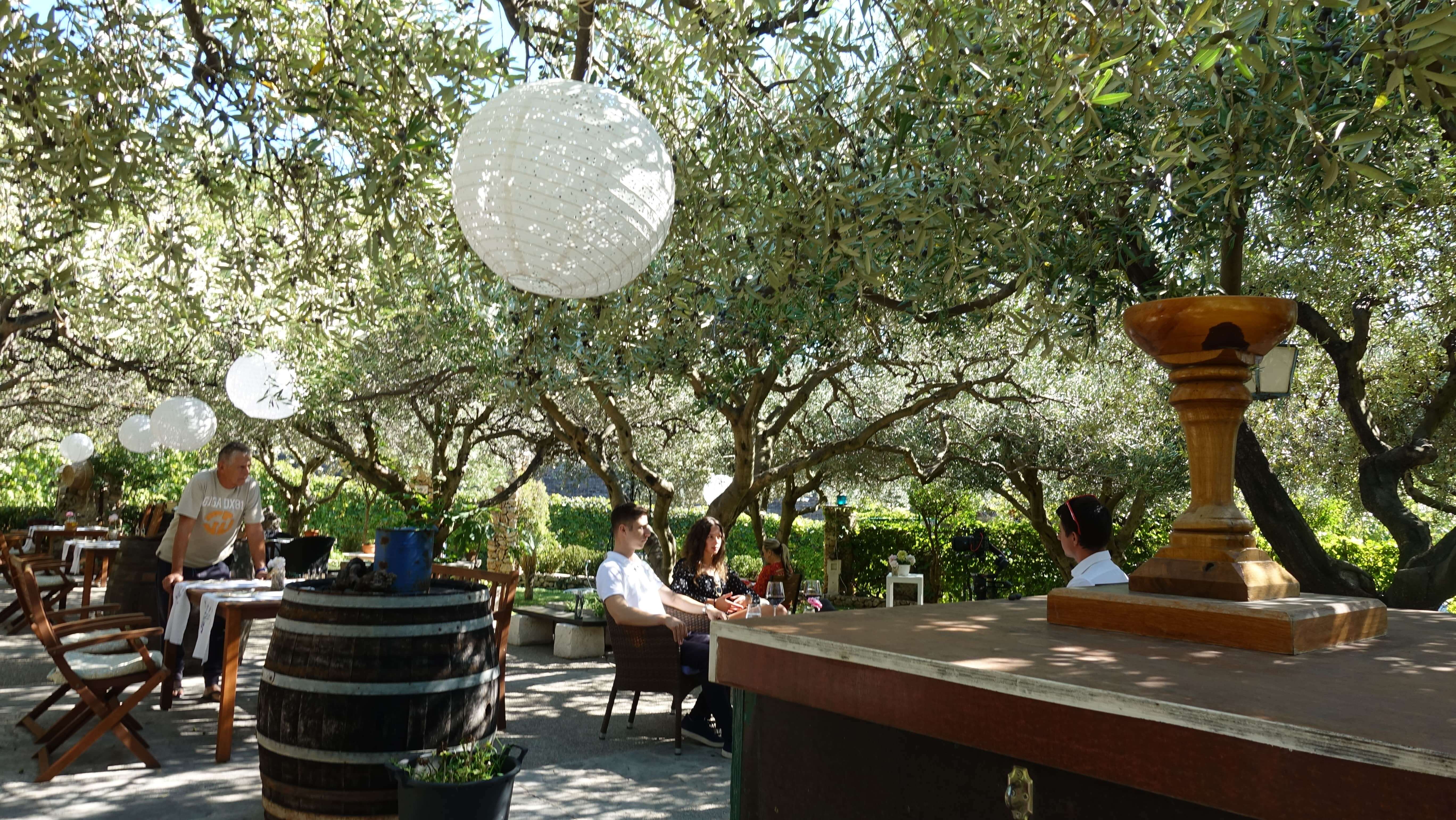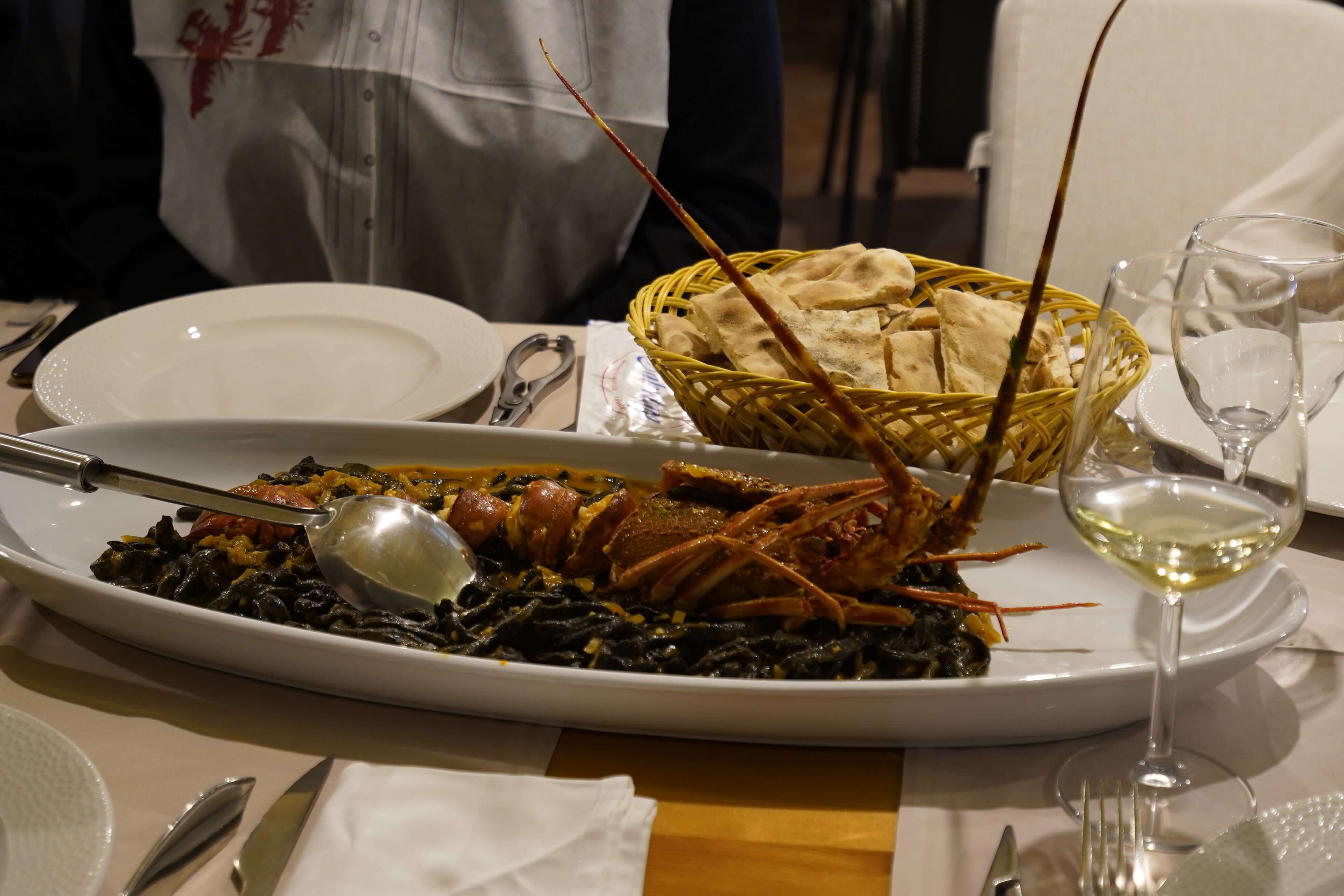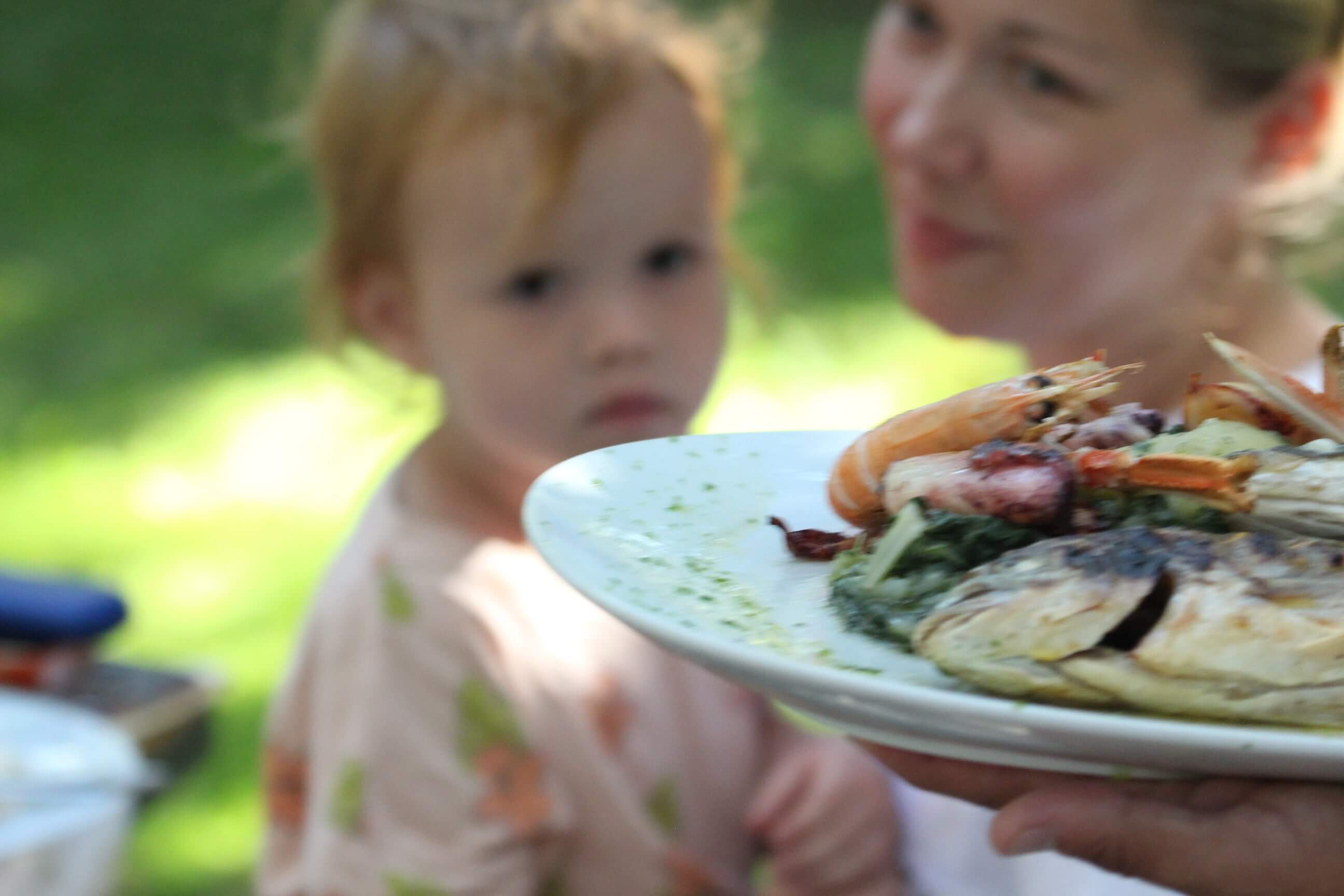Taste Croatia: The Mediterranean Diet (VIDEO)
December 18, 2021 - Food is the first thing everyone thinks of when talking about the Mediterranean Diet, and while it's food that weaves all the elements of the Mediterranean diet together, over the past three months we've learnt that the Mediterranean diet is so much more than just food.
Healthiest Food Choices
Chances are you have heard of the Mediterranean diet, not only for its deliciousness but also for the fact that the Mediterranean diet has long been known as one of the healthiest food choices.
The US News & World Report rating the best diets for 2021 had the Mediterranean diet top the scales as the best diet overall in the annual best diet rankings for the fourth consecutive year being described as extremely delicious, easy to follow, easy to get started, and very sustainable.
Uniquely Croatian Twist
Living in such a beautiful region as part of the Mediterranean, tourists flock to Croatia to taste, if just for a few days, the Mediterranean diet. A big part of that is enjoying the amazing fresh fare that is on offer, with its own uniquely added Croatian twist. All the way from the top north regions of Istria to down south of Dubrovnik you can find delicious, fresh, and healthy food.
Sure, you can try Mediterranean cuisine halfway across the world, and the key to your enjoyment is in the ambiance that comes along with the fare. Take your pick, anywhere you choose, whether inland or on the islands, you will find a treasure trove of specific ingredients that are still being grown and prepared using traditional methods. Along with Spain, Italy, Greece, and Morocco, the Croatian islands of Brač and Hvar are centres of protected Mediterranean cuisine, since a part of the ingredients and spices, as well as the customs surrounding the preparation of some dishes, represent a shared cultural heritage.
“Your body is not a temple, it’s an amusement park – enjoy the ride.” These are the words of one of the world’s most famous and beloved chefs, Anthony Bourdain, and words to live by when it comes to the Mediterranean cuisine on the Adriatic.
More Than Just Food
Take the time and you will realise that the Mediterranean Diet goes beyond being only an exceptional dietary pattern. There is an entire culture around the production, preparation, presentation, and consumption of food. The real Mediterranean diet is so much more valuable to us than just eating fresh, wholesome food. From buying or growing, to preparing and eating Mediterranean meals can vary across the region, with Peka here in Croatia to Paella in Spain.
The Mediterranean Diet involves a lifestyle, a Mediterranean dynamic cultural complexity, which includes traditions concerning agriculture, fishing and livestock, food processing, preservation, cooking techniques, food sharing, and consumption. Cooking and meals are perfect social meetings to exchange ideas and communicate with family, friends, and neighbours, to forge closer ties, in cordiality and respect.
The Mediterranean Diet has a main role in culture, being present in festivities, celebrations, and daily life, represented in crafts, in markets, as places for exchange, or inside the familiar nucleus, where techniques and recipes are transmitted.
Med Diet Declaration
The Med Diet Declaration aims to achieve greater visibility and significance of the Mediterranean diet across all sectors, such as agriculture, food production, health, culture, sport, education, economy, tourism, rural development, and sustainability.
Endorsing this declaration is an opportunity for local and regional actors to demonstrate the crucial role they can play in strengthening the economic potential of the Mediterranean diet in rapidly changing landscapes and lifestyles. This call is therefore an invitation to join the Med Diet Declaration community, a badge that highlights an active role in DEFENDING, PRESERVING, and PROMOTING the Mediterranean diet.
Med Diet Endorsers
We were thrilled to be chosen to be part of this project and work with the first Endorsers of the Med Diet Declaration here in Croatia. To meet families who for generations have been sustaining their lifestyle by promoting and living the true Mediterranean Lifestyle. In this video we introduce you to two of the Med Diet Endorsers:
MALI RAJ, BOL, ISLAND OF BRAČ
Mali Raj translated into English means little paradise. And that's exactly what you feel as you arrive at the restaurant with it being located in a most beautiful setting just above the beach 'Zlatni Rat'. It's not just the setting that creates this atmosphere. The food is heavenly too, reflecting traditional Dalmatian cuisine with some of the most interesting recipes being added to the menu, with various types of tartar, carpaccio, and buzara.
RESTAURANT TRICA GARDELIN, VRBOSKA, ISLAND OF HVAR
Another island favourite is Restaurant Trica Gardelin, a family-run restaurant in the picturesque village of Vrboska. Their love of the Mediterranean diet is seen not just in their business, it weaves its way through every aspect of their lives. And their motto "from the sea to your plate" has been confirmed by us on many occasions and by many of our guests, both local and visitors to Croatia.
For more information about the Med Diet Declaration - read here
For more information Travel/Lifestyle in Croatia follow TCN's dedicated pages - Lifestyle | Travel
If you have questions on anything sailing in Croatia, feel free to ask below in the comments or check out Total Croatia, Sailing in Croatia: Your One-Stop-Shop for everything sailing.
Should 0,5 Remain Alcohol Limit For Drivers in Croatia? Istrian Winemakers Worried of Wine Industry Hit
April 13, 2021 - This year or no later than 2023, the new National Road Safety Plan 2020 to 2030 should be implemented in practice. The plan is so far just a proposal, and one of the suggestions is to reduce the so far allowed 0.5 alcohol limit for drivers in Croatia to 0.0.
However, as Goran Rihelj reports for Hr.Turizam, Istrian winemakers think that 0.5 should remain the upper limit as they fear this will be another blow to winemakers and winegrowers.
„With a corona crisis that has no end in sight and an average drop in wine sales in Istrian wineries of 30 percent, this could be an additional blow to our sector. Istria has positioned itself as a top end-gastro destination with the quality of wine and offer, and we believe that our country should harmonize the National Road Safety Plan with European wine countries such as Italy and France, where 0,5 is allowed, while in Great Britain, for example, 0,8“, said Nikola Benvenuti, President of Vinistra.
Istrian winegrowers and winemakers point out they advocate responsible alcohol consumption but think 0.0 should be the law only for young drivers (defined by the current law of Traffic safety as a driver of 24 years of age) and professional drivers.
Prof. dr. sc. Mladen Boban from the Medical Faculty in Split, who has been researching the biological effects of wine on health for years, says this change would contradict other action plans and strategic documents with whom Croatia plans to increase awareness of the general population about the benefits of Mediterranian cuisine.
"It should not be forgotten that moderate drinking of wine with food is one of the pillars of this diet with the relatively largest contribution to the beneficial effects on health. In this context, it is important to note that in 2013, at the initiative of Croatia and six other Mediterranean countries, UNESCO inscribed the Mediterranean diet in the intangible cultural heritage of mankind. The World Health Organization accepts the Mediterranean diet as an effective strategy for the prevention of non-communicable chronic diseases as the leading causes of premature death globally", Concluded Professor Boban for Hr.turizam.
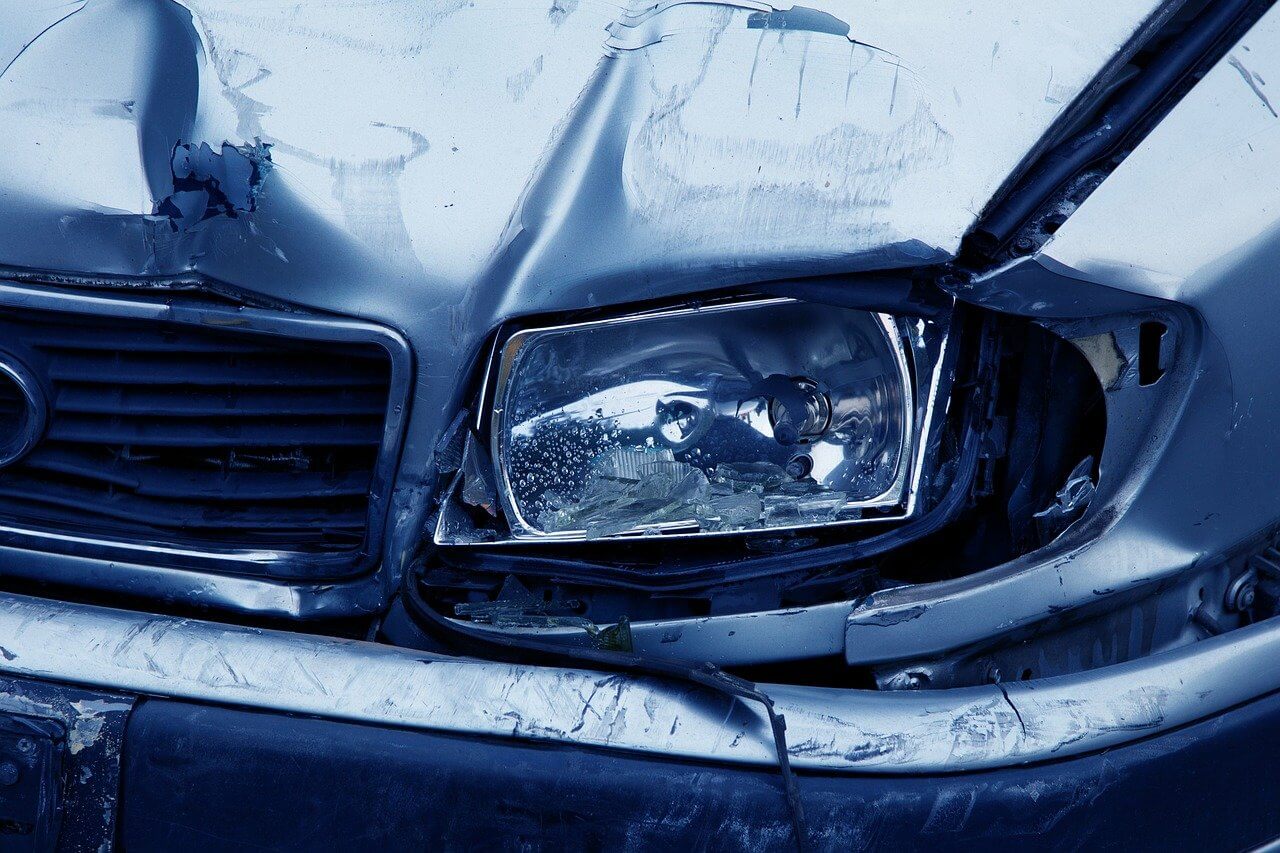
pixabay
In an article in 2019 Croatian Automobile Club magazine Revija HAK reported that in the eight of the top fatal car crashes from 2016-2018, the leading cause was driving in the opposite direction, which happens due to driving too fast. The article also states that in the said period, 12.989 traffic accidents were caused by drivers under the influence of alcohol. In that number of traffic accidents, 235 persons were killed, and 1,709 were heavily injured, while light injuries due to "drink & drive" are owned to a number of 5,524 incidents. Statistically, drunk drivers are responsible for every fourth death, according to the article in Revija Hak.
In total, Croatia saw 883 traffic accidents with fatal consequences, and 955 people died in the 2016-2018 time spawn.
While winemakers and professor Boban advocate moderate drinking, sadly, the issue of actually respecting the current limit and personal limits of intoxication before sitting behind the wheel remains questionable for Croatian drivers. However, is reducing the allowed alcohol limit enough to make a difference remains unclear.
Learn more about Driving in Croatia on our TC page.
For more about lifestyle in Croatia, follow TCN's dedicated page.
Enjoy the Croatian Lifestyle, it May Save Your Life
Croatia offers more than just the sun and the sea, spending a week here and adapting to the lifestyle may just save your life.
Exploring Croatia's Intangible UNESCO Heritage: The Mediterranean Diet
Continuing our look at the intangible UNESCO heritage of Croatia on November 5, 2016, a recent addition to the list has been the Mediterranean diet, which recently became intangible heritage for several Mediterranean countries including Spain, Portugal, Greece, Cyprus, Morocco, Italy and Croatia (with the islands of Hvar and Brac respresenting Croatia).
Croatian Chefs Bring Home Gold and Silver from the Sweet Thread International Culinary Competition
Croatian Master Chefs Association team scores big at the international culinary cup in Bjelovar


